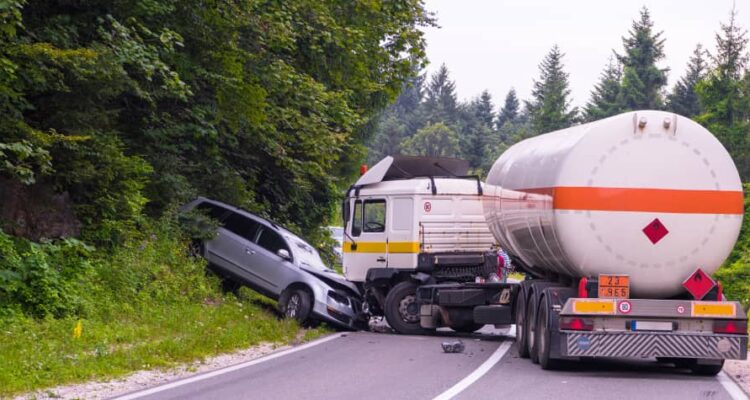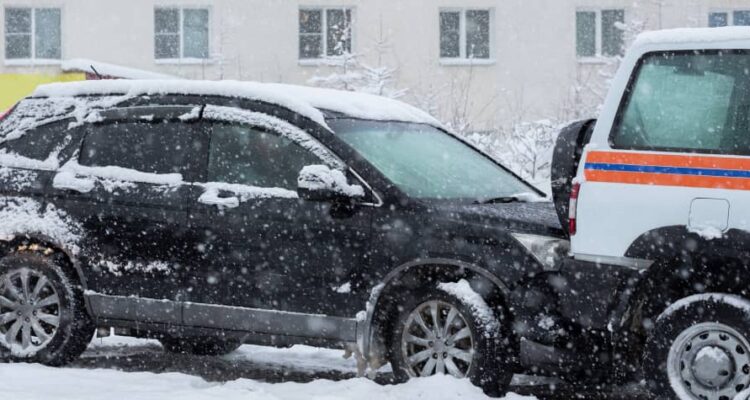As a Colorado truck accident lawyer, I have seen the devastating aftermath of collisions involving large commercial vehicles. These cases act as a reminder that, when something goes wrong on our highways, the stakes are high. Far too often, truck accidents result in catastrophic and permanent injuries, or even death. Enter the emergency interim rule by the Federal Motor Carrier Safety Administration (“FMCSA”) limiting non-domiciled commercial driver’s licenses (“CDLs”). In this article, I explore the regulatory safety intent and potential litigation implications for carriers, drivers, and truck accident victims.
What the Rule Actually Does
In late September 2025, the U.S. Department of Transportation (“DOT”) and FMCSA announced the emergency rule titled “Restoring Integrity to the Issuance of Non-Domiciled CDLs.” This action follows a nationwide audit by the FMCSA and a series of horrific fatal truck accidents caused by non-domiciled drivers.
Pursuant to the emergency rule, the term “non-domiciled CDL” refers to a state-issued CDL granted to someone not domiciled in that state (and often not a U.S. citizen or lawful permanent resident). The emergency rule also narrowed eligibility to certain employment-based visa categories (such as H-2A, H-2B, E-2 for non-U.S. citizens) and excludes many others (for example individuals with only an Employment Authorization Document (EAD), DACA recipients, asylum/ refugee status, etc.).
Under the emergency rule, non-citizens now face stricter requirements before they can obtain or renew a CDL. These include:
- Proof of an employment-based visa
- Mandatory verification through the federal SAVE immigration system
- Immediate revocation of noncompliant licenses
The rule took effect after the FMCSA discovered states were issuing non-domiciled CDLs in ways that allowed unsafe drivers on the road. This included drivers whose legal presence had expired, drivers whose foreign driving records could not be ascertained, and drivers operating under questionable licensing processes.
Why Safety Advocates Say This Matters
From a safety and liability standpoint, the emergency rule aims to address a specific risk: issuing heavy-truck driving privileges to individuals whose credentials, domicile, driving history, or legal status may not have been adequately verified. As FMCSA notes:
“Systemic non-compliance across several states … Insufficient staff training … Drivers whose licenses were valid long after their lawful presence in the U.S. expired.”
In the context of truck accident litigation, the critical concepts include duty of care and qualified driver. A carrier must ensure its drivers are properly licensed, trained, medically qualified, rested, and compliant with regulations. If a driver is improperly licensed (i.e., under a non-domiciled CDL scheme that did not meet tightened requirements), that fact can become a powerful piece of evidentiary leverage in a case.
If a large truck causes a serious accident and the investigation shows the driver held a non-domiciled CDL, that may raise red flags about the carrier’s hiring, vetting, and oversight practices. It could open the door to claims of negligent hiring, negligent supervision, negligent entrustment, or failure to verify credentials.
Litigation Implications for Truckers, Carriers, and Plaintiffs
As a lawyer representing truck accident victims, here are some of the things I am watching:
Driver-roster audits and credential validity
Carriers must now evaluate whether any of their drivers hold non-domiciled CDLs that may be impacted by the rule. That a carrier continued to deploy a driver whose credentials are questionable could be used evidence of recklessness or disregard for safety.
State-licensing agency exposure
The states that issue CDLs now face pressure and scrutiny for improper issuance or oversight. In litigation, defense attorneys may attempt to shift blame to the state-licensing agency (SDLAs). However, the carrier still retains the primary obligation to ensure its driver is properly credentialed and safe.
Driver status and training records
The fact the new rule excludes certain categories (e.g., asylum seekers, DACA) may lead to drivers losing license eligibility. For challengers, if a driver’s license is later deemed invalid or revoked, the driver was operating illegally at the time of crash. This is a fact plaintiffs can (and will) use to bolster liability arguments.
Evidence chain of licensure and compliance
In a truck accident case, obtaining the driver’s CDL history, entitlement to work, I-94 or visa records, state licensing records, renewal dates, in-person renewal proof, SAVE verification logs — these will all become relevant document requests and deposition topics. A robust discovery strategy will demand asking the carrier, the driver, and the state for that information.
Safety narrative and jury focus
Jurors do not automatically care about “immigration status” per se, but they do care about whether the carrier allowed someone to drive who should not have been there. The narrative becomes: “This truck should not have been allowed on the road under these conditions, and my client paid the price.” That resonates.
Potential for spoliation or hidden risk
If a carrier should know of questionable licensure and fails to act, that increases the risk for spoliation claims for failing to revisit driver eligibility. For instance, if an internal audit showed a non-domiciled CDL driver but the carrier did not act or removed the driver quietly, that raises inference of concealment.
Advice for Truck Accident Victims
If I were advising a client in a crash involving a truck driven by a non-domiciled CDL holder (or a driver whose credentials are now suspect), I would suggest the following steps:
- Obtain the driver’s CDL file with any issuer state: date of issuance, renewal dates, domicile information, classification, endorsements, expiration date, any downgrades or cancellations.
- Request the driver’s immigration/work authorization records: visa status or I-94, passport, EAD, etc. If the driver falls outside the new eligibilities under FMCSA’s rule, that strengthens the case.
- Depose the carrier’s safety/hiring managers about their process for approving non-domiciled CDL drivers, verifying SAVE status, in-person renewals, retention of documents, and awareness of the rule.
- Seek state licensing agency records for non-domiciled CDL issuance and internal audits to see whether improper licensing was systemic in that state (many states were flagged by FMCSA).
- Focus on the carrier’s knowledge: Did the carrier know (or should it have known) that the driver’s non-domiciled status might trigger ongoing changes in eligibility, and did the carrier audit or review driver records accordingly?
- Highlight risk reduction and duty: In closing, emphasize that the rule shows federal regulators identified a safety risk tied to improperly vetted drivers — thus carriers must now do more, and failure to do so is relevant to causation.
But Be Careful — Nuances and Defenses Matter
While the rule provides potent themes for plaintiffs, there are several caveats:
- The fact a driver holds a non-domiciled CDL does not automatically prove they were unsafe or incompetent. Adequate performance records, training compliance, safe driving history still matter. The focus is on the carrier’s oversight, not automatically blaming the driver’s status.
- Carriers will argue they complied with existing state law at the time of issuance, that the rule change is prospective, and they lacked notice or could not have anticipated retrospective application.
- States might defend their licensing practices, and carriers might assert “state compliance” defense: if the state licensed the driver validly under the prior standard, the carrier may shift blame. Plaintiffs must anticipate that and build around it.
- The rule is being challenged in court (e.g., a lawsuit in the D.C. Circuit argues the emergency rule was procedurally improper). So legal uncertainty remains.
- Driver shortage pressures may lead to arguments that excluding non-domiciled CDL holders reduces safety by pressuring carriers to hire less qualified U.S. citizens. Plaintiffs need to approach that carefully if raised by defense.
Final Thoughts
From my vantage as a truck accident lawyer, this FMCSA emergency rule is a meaningful regulatory marker. It signals federal regulators believe there is a safety gap in how some non-domiciled CDL holders obtained credentials and how states manage them. For victims of truck accidents, this rule provides another arrow in the quiver of arguments about liability, especially around driver qualification, carrier due diligence, and credentialing systems.
If you discover the truck driver holds (or held) a non-domiciled CDL, or the carrier employed or contracted one, it is important to dig into the carrier’s hiring and oversight process, licensing compliance, renewal practices, and whether the carrier responded to the regulatory changes. The rules are tightening — and carriers that did not proactively adjust may find themselves exposed.
If you would like a deeper dive into specific deposition questions, sample document requests, or case themes around non-domiciled CDLs and accident liability, I would be glad to help.
Bowman Law: Colorado Truck Accident Lawyers
At Bowman Law, our Colorado truck accident lawyers understand truck cases are unlike ordinary car crash claims. The size and weight of commercial trucks often leads to more catastrophic injuries, long-term disability, or wrongful death. These cases also involve complex federal safety regulations, aggressive corporate defense teams, and powerful insurance carriers determined to limit payouts. Our Colorado truck accident lawyers have the experience and resources to take on these challenges head-on.
We have built a reputation by combining deep knowledge of FMCSA regulations, skilled accident reconstruction, and relentless advocacy for clients. From negligent hiring to violations of federal safety rules, our Colorado truck accident lawyers know how to uncover key evidence. At Bowman Law, we do not just handle cases — we build them to withstand the most aggressive defense strategies.
If you or a loved one has been injured in a truck accident in Colorado, contact a law firm with a proven record of success. Please send us a message or call us at 720-547-4109 to schedule a free case evaluation. Our Colorado truck accident lawyers will fight to protect your rights and deliver the justice you deserve. We serve clients across Colorado’s Front Range and beyond, including Denver, Colorado Springs, Boulder, Fort Collins, Westminster, Lakewood, and Aurora.



 Return to All News & Resources
Return to All News & Resources


